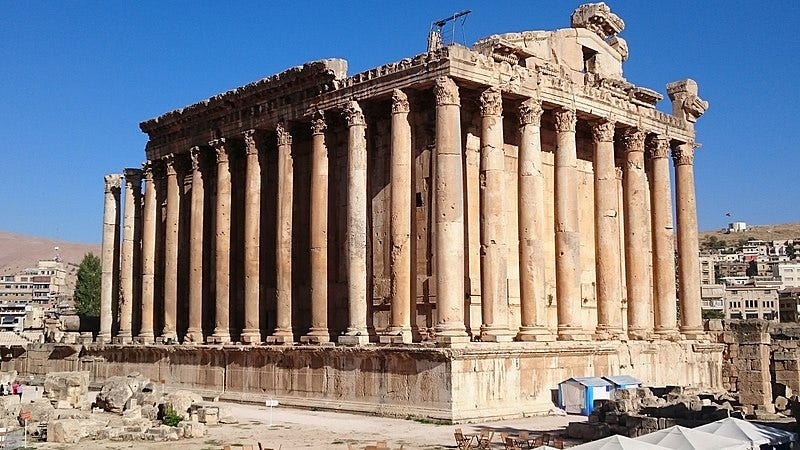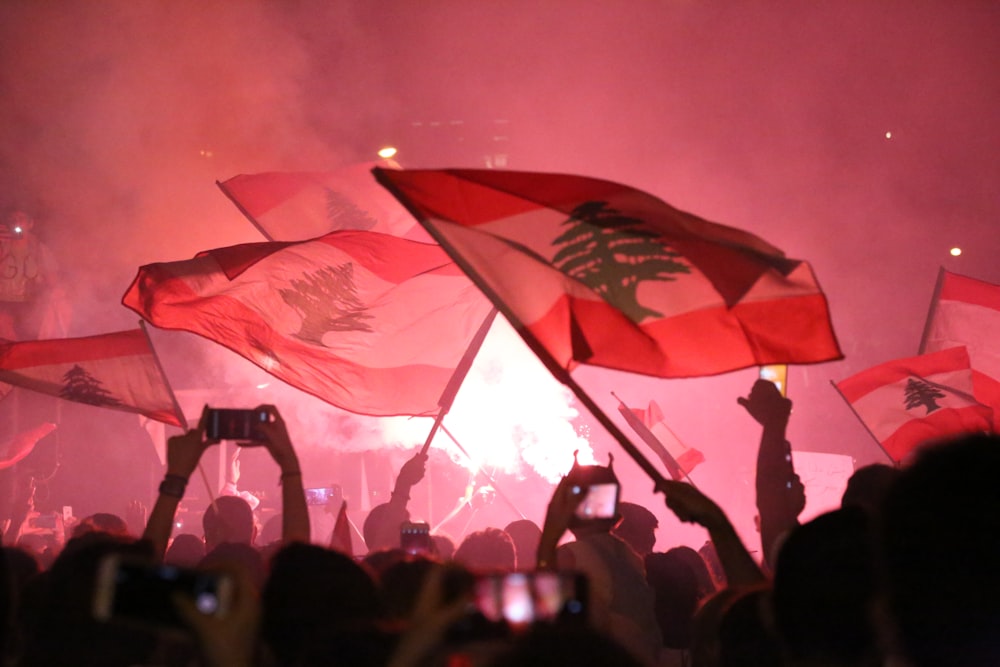🇱🇧 Voice #11: People Robbed Banks to Get Their Own Money in Lebanon
How far would you go to get your own money from your bank?
Today’s post is from Charles Amemiya, a formerly incarcerated life/business coach, speaker, technical writer, and social responsibility advocate.
Follow relevant topics and analyses on Medium@charles_30927 and www.charlesamemiya.com
If you don’t have a Medium membership, consider getting one, its only $5/mo
If you would also like to write for “Inflated World,” reply to this email!
Imagine trying to withdraw money from your bank and then finding out the bank won’t give it to you. Unfortunately, that’s what happened to many people in Lebanon.
The Lebanese government put very strict limits on the withdrawal of foreign money since the beginning of their economic crisis in 2019. This has essentially frozen many bank accounts and caused many problems for people who need their money for necessities.
And it’s caused quite a few people to do some desperate things.
This week, an armed woman and several of her associates took a group of people hostage at a BLOM bank in Beirut, Lebanon’s capital city. The woman, identified as Sali Hafiz, left with $13,000 of her own money. She told a news channel that the gun she used was just a toy and needed the money to pay for her sister’s cancer treatment.
She said, “I got to a point where I was going to sell my kidney so that my sister could receive treatment.”
The brave woman and her accomplices fled the bank before the police arrived.
The same day, a man went into a Bankmed bank in Lebanon and used a gun to forcibly take some of his money. He later turned himself in to the police.
In August of 2022, Bassam al-Sheikh Hussein held up a BLOM bank with a gun and also took hostages because the bank didn’t let him withdraw his money. Bassam needed $10,000 of his own money to pay for an operation for his dad.
As Bassam’s saga unfolded in the bank, a large crowd gathered outside the bank and supported him. News of his plight spread on social media, becoming a national hero. Hours after the bank siege, he surrendered to police after the bank agreed to release $30,000 of his funds. He was detained by police but later released.
Economic Collapse
Lebanon’s currency lost over 90% of its October 2019 value. There are food, fuel, and water shortages. The country has been plagued by electricity cuts that have lasted over 20 hours.
More than 80% of Lebanon’s people live under the poverty line. Its healthcare system is under a lot of strain. The inflation rate will average about 178% in 2022. Now that everyone’s purchasing power has been decimated, its citizens have been forced to make hard choices.
Many have prioritized water and electricity over the food they normally eat. As a result, 90% of Lebanese families eat less expensive food, cut back on meals, and reduce portion sizes.
The banking crisis is making their problems much worse.
Financial Mismanagement & Corruption
These acts of violent civil disobedience have occurred because of extreme financial mismanagement and corruption. After a 15-year civil war, Lebanon’s economy rose quickly. It made money from tourism, foreign aid, support from rich Muslim countries, and the income from millions of its citizens who worked abroad.
Then it began losing financial support from affluent Muslim states because of political and social division. As a result, it sunk deeper in debt as people wasted money on luxury items and banks paid excessive interest rates. Instead of lowering spending, Lebanon’s government increased public sector pay and didn’t do any financial reform, which stopped foreign donors from giving more money.
Only the rich benefited from this financial stupidity.
Mass protests took place, foreign exchange funds collapsed, and people started pulling their money out of Lebanon. Banks were unable to give many of their customers their own money. Long lines of angry customers formed outside local banks. The government defaulted on its debt, and the currency collapsed.
As is often the case, the rich got richer, and the poor got poorer.
This is a cautionary tale for any developing country.
The only way out of this financial shit storm is to get rid of the government corruption and stop the financial mismanagement, two things that are far easier said than done.
Like other countries struggling with corrupt leaders, political instability, and severe economic decline, Lebanon needs strong, ethical leaders who will focus on reform, common sense economic policies, and moderate spending.
Most of all, it needs leaders who care deeply about the well-being of the people and will never put greed above humanity.
People in this world should never have to rob a bank to get their own money.
Btw, Lebanon is a beautiful country…sample itinerary from AI
Lebanon is a beautiful country with a rich history and culture. Situated on the Mediterranean Sea, Lebanon has a coastline of over 170 miles. The country is also home to several mountain ranges, including the Lebanon Mountains, which reach an elevation of over 10,000 feet. Visitors to Lebanon can enjoy a variety of activities, from exploring ancient ruins to soaking up the sun on one of the country's many beaches. Here is a sample travel itinerary for Lebanon:
Day 1: Arrive in Beirut and check into your hotel. Spend the day exploring the city. Visit renowned landmarks such as the Beirut Souks and Martyr's Square. In the evening, enjoy a delicious Lebanese meal at one of the city's many restaurants.
Day 2: Drive north to The Cedars, a UNESCO World Heritage Site. Once covered in forests of cedar trees (from which the name is derived), today The Cedars is home to a ski resort and several hiking trails. Enjoy lunch at a local restaurant before returning to Beirut in the afternoon.
Day 3: Travel south to Tyre, one of the oldest continuously inhabited cities in the world. Explore the city's Roman ruins before heading to one of Tyre's beaches for a swim or some relaxing time in the sun. In the evening, enjoy dinner at a seafood restaurant overlooking the Mediterranean Sea.
Day 4: Drive east to Baalbek, home to some of the best-preserved Roman ruins in Lebanon. Spend the day exploring Baalbek's temples and colonnades before returning to Beirut in the late afternoon.

Day 5: Depart Lebanon after breakfast and begin your journey home.



